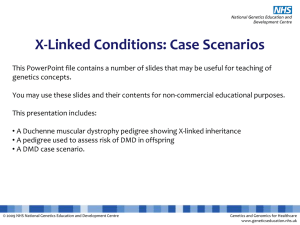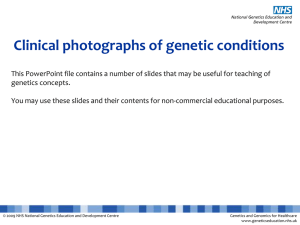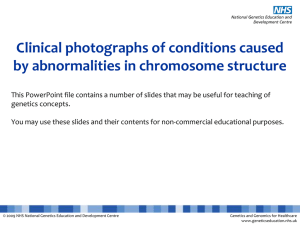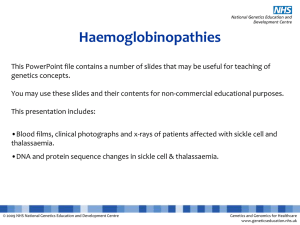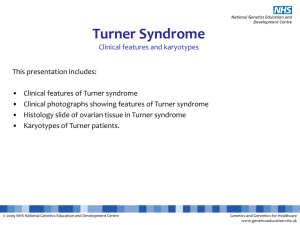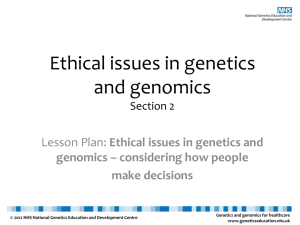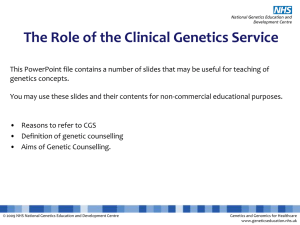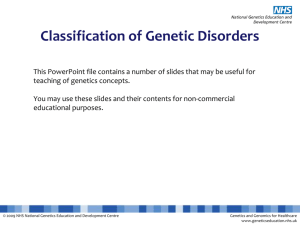X Inactivation - National Genetics Education Centre
advertisement
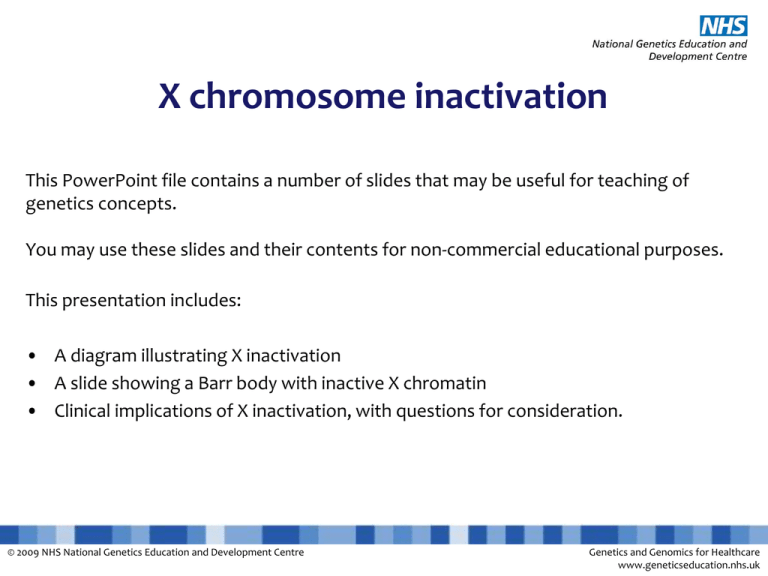
X chromosome inactivation This PowerPoint file contains a number of slides that may be useful for teaching of genetics concepts. You may use these slides and their contents for non-commercial educational purposes. This presentation includes: • A diagram illustrating X inactivation • A slide showing a Barr body with inactive X chromatin • Clinical implications of X inactivation, with questions for consideration. © 2009 NHS National Genetics Education and Development Centre Genetics and Genomics for Healthcare www.geneticseducation.nhs.uk X-inactivation is an epigenetic process. Because of X-inactivation every female is a mosaic of cell lines with different active X chromosomes Fig. 7.4 ©Scion Publishing Ltd © 2009 NHS National Genetics Education and Development Centre Genetics and Genomics for Healthcare www.geneticseducation.nhs.uk Barr body - inactive X chromatin © 2009 NHS National Genetics Education and Development Centre Genetics and Genomics for Healthcare www.geneticseducation.nhs.uk Clinical implications of X-Inactivation Questions for consideration: • Why is it difficult to determine if a gene is at the tip of Xp/Yp through linkage studies? • Why don’t all women have features of Turner syndrome if one X chromosome is inactivated? • Why are there clinical effects associated with additional X chromosomes? • Why was a buccal smear used for confirming whether an athlete was a male or a female? © 2009 NHS National Genetics Education and Development Centre Genetics and Genomics for Healthcare www.geneticseducation.nhs.uk Clinical implications of X-Inactivation Questions for consideration (cont): • Why do women have twice the levels of steroid sulphatase as men? • Why do women who are carriers for X-linked ectodermal dysplasia have an abnormal sweat gland pattern? • Why do some carriers of Duchenne muscular dystrophy have very high levels of CK whilst others have very low levels? • Why do some women show signs of Duchenne muscular dystrophy? © 2009 NHS National Genetics Education and Development Centre Genetics and Genomics for Healthcare www.geneticseducation.nhs.uk
